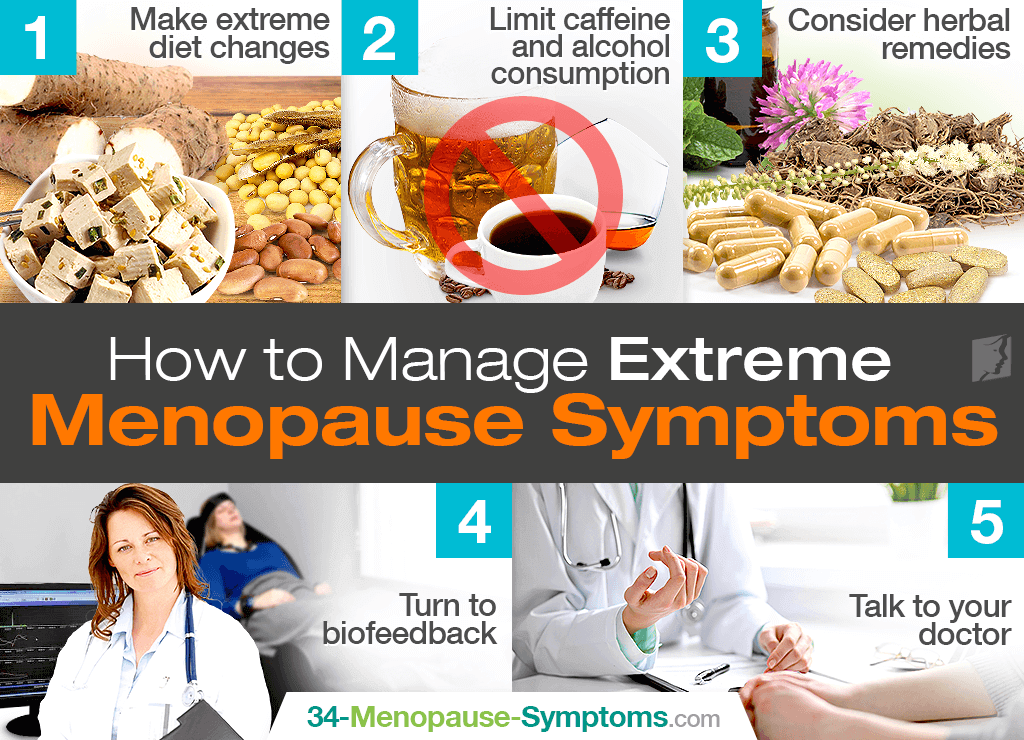Women who are suffering from severe menopause symptoms may feel as if they can find no reprieve in generic treatments and advice, with the symptoms coming back each and every time. Continue reading to find out how to manage extreme menopause symptoms so you can take control back over your health and well-being.
Make extreme diet changes
It is not enough to just eat healthily with minimal amounts of processed foods. In order to manage extreme menopause symptoms, you must be smart about your food choices. Consciously incorporate phytoestrogens into your diet, which are foods that contain plant-based estrogens to mend the hormonal gap. They include soy products, beans, yams, apples, and more.
Limit caffeine and alcohol consumption
Research has found that regular caffeine consumption aggravates vasomotor symptoms (think: hot flashes and night sweats). Also, heavy alcohol consumption increases the risk of cardiovascular disease among other long-term health conditions, including diabetes, osteoporosis, depression, nerve and brain damage, and more.
Consider herbal remedies
When combatting extreme menopause symptoms naturally, it is necessary to combine lifestyle adjustments with alternative medicine proven to bring results. Phytoestrogenic supplements and hormone-regulating supplements are the two most common. For long-term use, the latter is considered safer since they work with your body to encourage its own hormone production instead of introducing outside hormones into the body.
Turn to biofeedback
Biofeedback might be a viable option if lifestyle changes and herbal remedies don't reduce your symptoms. This technique teaches the individual to control the body's involuntary actions. It can help with symptoms such as hot flashes, headaches, low libido, etc. Only consider this option after speaking with your doctor about your specific case.
Talk to your doctor
Speak to your doctor about your symptoms. Based on your medical history and your own individual circumstances, they will be able to help. Some symptoms can vary in severity more than others and will need more attention depending upon their progression. For example, extreme cases of mood swings can lead to depression, bipolar disorder, and anxiety.
More Information
To get more information about menopause symptom treatments and to learn why you are suffering with them in the first place, follow the link above.
Sources
- Mayo Clinic. (2017). Is there a link between caffeine consumption and menopause symptoms? | Menopause: Symptoms & causes. Retrieved February 8, 2019, from https://www.mayoclinic.org/diseases-conditions/menopause/expert-answers/menopause-symptoms-caffeine/faq-20119077 | https://www.mayoclinic.org/diseases-conditions/menopause/symptoms-causes/syc-20353397
- The North Americans Menopause Society. (n.d.). Drink to Your Health at Menopause, or Not? Retrieved February 8, 2019, from https://www.menopause.org/for-women/menopauseflashes/exercise-and-diet/drink-to-your-health-at-menopause-or-not




